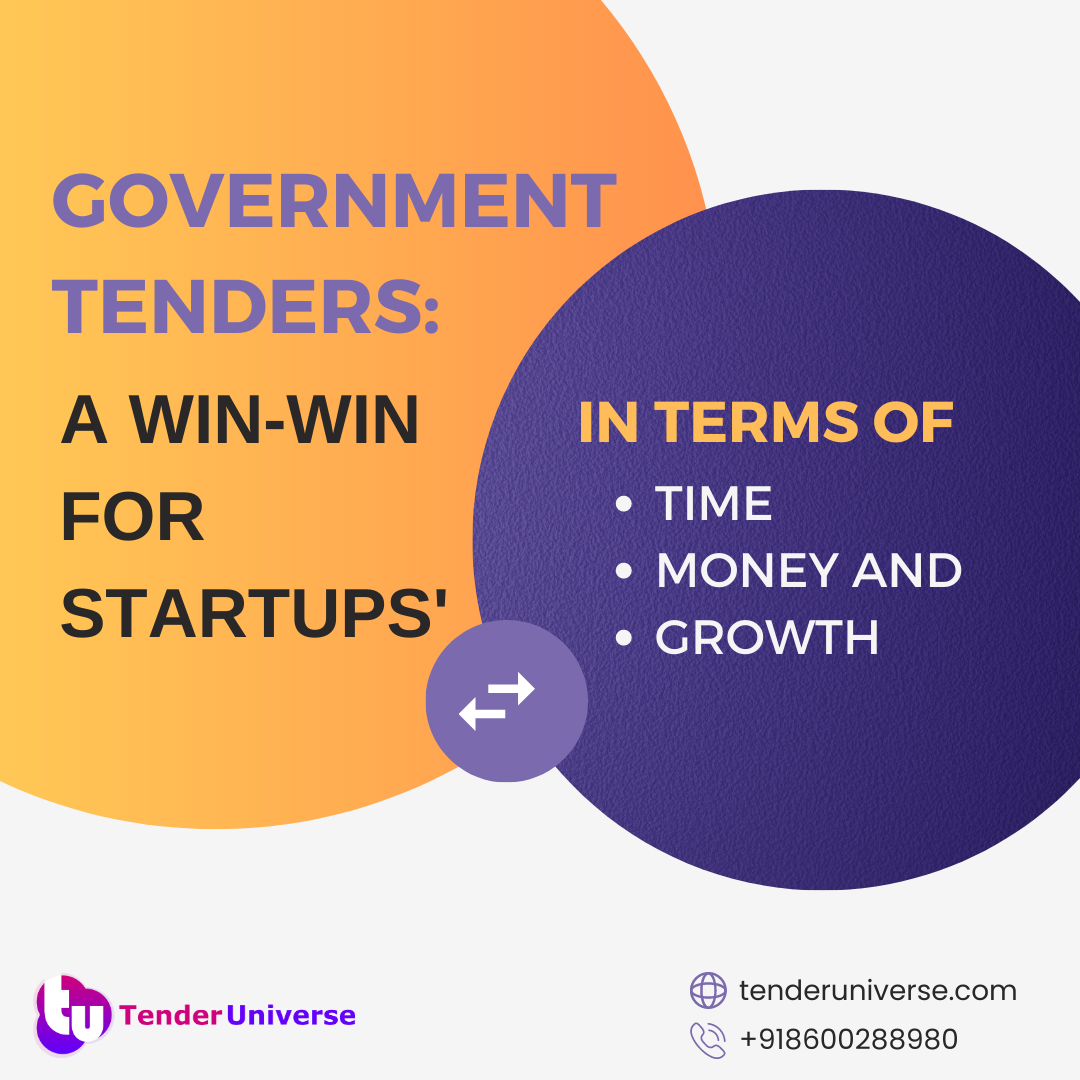
Government Tenders: A Win-Win for Startups' Time, Money, and Growth
Startups often face unique challenges when it comes to establishing their presence in the market and gaining traction. One avenue that holds significant potential for startups is government tenders. These procurement opportunities offered by government agencies can provide startups with valuable contracts, stable revenue streams, and opportunities for growth. However, the question remains: do government tenders truly benefit startups in terms of saving time and money? In this article, we will delve into this topic and explore the advantages that government tenders can offer to startups. Government tenders can be a great way for startups to get their foot in the door and win big contracts.
Access to a Stable Market:
Government tenders provide startups with access to a stable and lucrative market. Government projects often involve long-term contracts, ensuring a consistent flow of work and revenue for startups. This stability allows startups to plan and allocate resources more effectively, saving them valuable time and minimizing financial uncertainties.
Reduced Marketing Costs:
For startups, marketing can be a significant expense. However, government tenders eliminate the need for extensive marketing efforts. By participating in government procurement processes, startups can showcase their capabilities to government agencies directly. This direct access to potential clients saves both time and money that would have otherwise been spent on traditional marketing strategies.
Streamlined Procurement Process:
Government tendering processes have become more streamlined and transparent in recent years. With the advent of online platforms and e-procurement systems, startups can easily access and participate in tender opportunities. The simplified procedures reduce administrative burdens, allowing startups to focus on preparing competitive bids, ultimately saving time and resources.
Collaboration and Networking Opportunities:
Participating in government tenders opens doors to collaboration and networking opportunities. Startups can form partnerships or subcontract with larger companies to enhance their capacity to fulfill tender requirements. Such collaborations not only improve the chances of winning tenders but also foster valuable relationships with established players in the industry, leading to potential future business prospects.
Skill Development and Knowledge Transfer:
Government tenders often require specific technical expertise and compliance with industry standards. Startups that engage in tendering gain exposure to such requirements and are compelled to enhance their skills and knowledge base. This continuous skill development and knowledge transfer contribute to the long-term growth and sustainability of startups, providing them with a competitive edge in the market.
Improved Credibility and Market Positioning:
Winning a government tender elevates a startup's credibility and enhances its market positioning. The association with a government contract demonstrates competence, reliability, and quality, which can attract additional clients and investors. This improved market perception helps startups save time and resources that would have otherwise been spent on building trust and establishing their reputation from scratch.
Business Expansion Opportunities:
Government tenders often involve large-scale projects and infrastructure development. Winning such tenders can provide startups with opportunities for business expansion and scaling their operations. By successfully completing government projects, startups can showcase their capabilities and gain a competitive advantage, leading to further growth and financial stability.
Cons:
- Competition: Government tenders are often very competitive, which can make it difficult for startups to win contracts.
A checklist to find out whether government tender is meant for your startup
Understand Your Industry: Research and assess if your startup's products, services, or expertise align with the government's procurement needs. Determine if there is demand for your offerings in the government sector.
Evaluate Capacity and Resources: Evaluate your startup's capacity to handle government contracts. Consider factors such as financial stability, manpower, infrastructure, and technical capabilities. Ensure you have the necessary resources to meet the requirements of government tenders.
Assess Competitiveness: Analyze the competition within the government tendering landscape. Determine if your startup can effectively compete with established companies and meet the evaluation criteria. Evaluate your unique selling points and differentiators.
Consider Legal and Regulatory Requirements: Familiarize yourself with the legal and regulatory framework surrounding government tenders. Understand the eligibility criteria, certifications, licenses, and compliance requirements needed to participate in government procurement processes.
Evaluate Time and Resource Commitment: Assess the time and resources required to prepare and submit tender proposals. Consider the effort involved in understanding tender documents, preparing documentation, and meeting deadlines. Evaluate if your startup can allocate sufficient time and resources for this process.
Determine Financial Viability: Analyze the financial implications of participating in government tenders. Consider factors such as upfront costs, cash flow requirements, payment terms, and the potential for long-term revenue generation.
Seek Expert Guidance: Consult industry experts, business advisors, or consultants who specialize in government tenders. They can provide valuable insights and guidance specific to your startup's situation, helping you make an informed decision.
Assess Risk vs. Reward: Evaluate the risks and rewards associated with government tenders. Consider factors such as the potential for long-term contracts, steady cash flow, and credibility gained from government partnerships. Balance these against the risks, such as intense competition and stringent contractual obligations.
Here are some additional tips for startups that are considering bidding on government tenders:
Do your research: Before you bid on any government contract, it is important to do your research and understand the requirements of the contract. You should also research the government agency that is issuing the contract to get a sense of their needs and priorities.
Build relationships: Building relationships with government officials can be helpful when you are bidding on government contracts. Attend industry events, meet with government officials, and network with other businesses that have successfully won government contracts.
Get professional help: If you are not familiar with the process of bidding on government contracts, you may want to consider getting professional help. There are a number of consulting firms that specialize in helping startups win government contracts.
Government tenders benefits that they offer to startups in terms of time and money cannot be overlooked. Access to a stable market, reduced marketing costs, streamlined processes, collaboration opportunities, skill development, improved credibility, and business expansion possibilities make government tenders a viable option for startups. However, it is crucial for startups to conduct thorough research, understand the requirements, and carefully assess the feasibility of each tender opportunity before committing their time and resources. With proper planning and strategic execution, government tenders can indeed be a valuable avenue for startups to thrive and succeed.


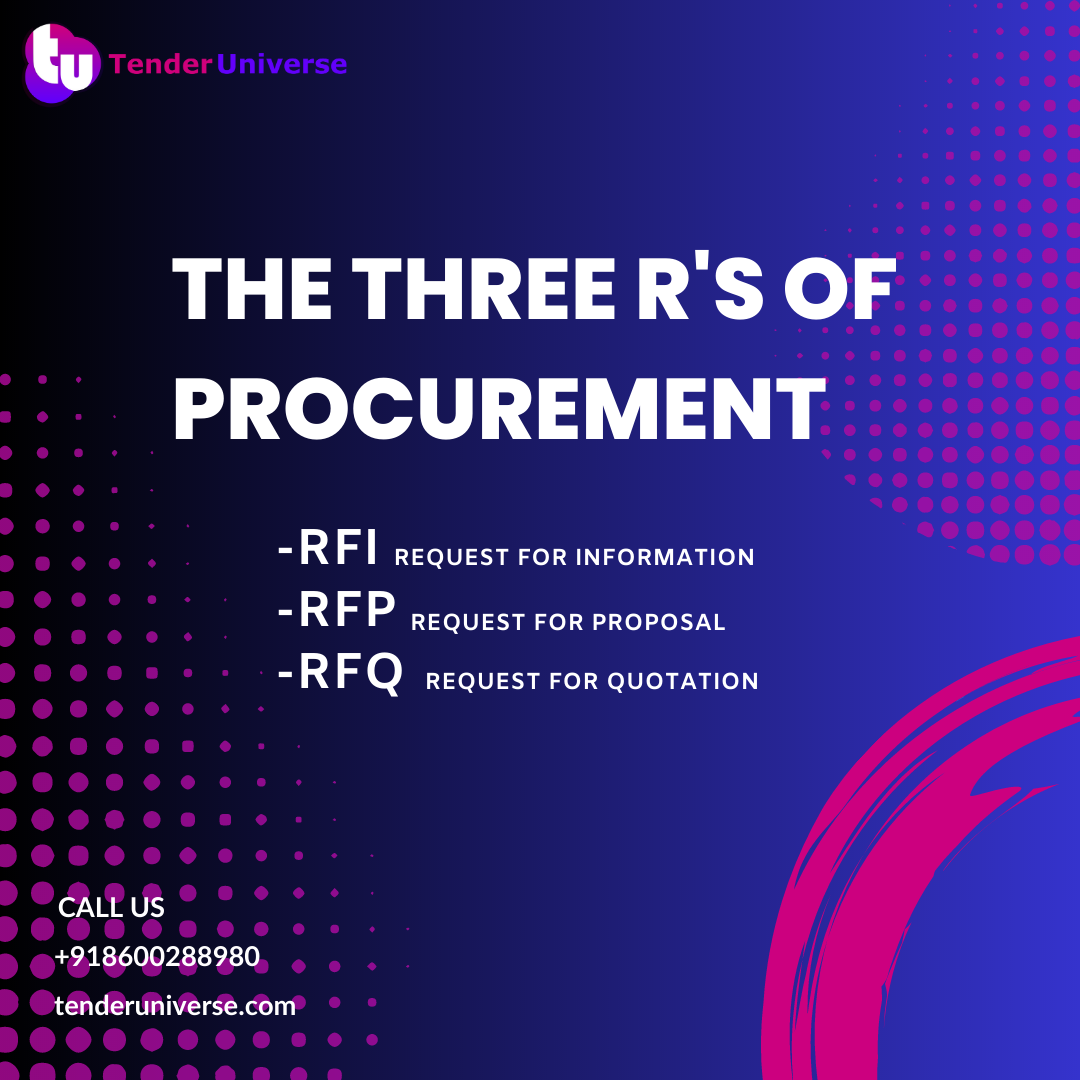



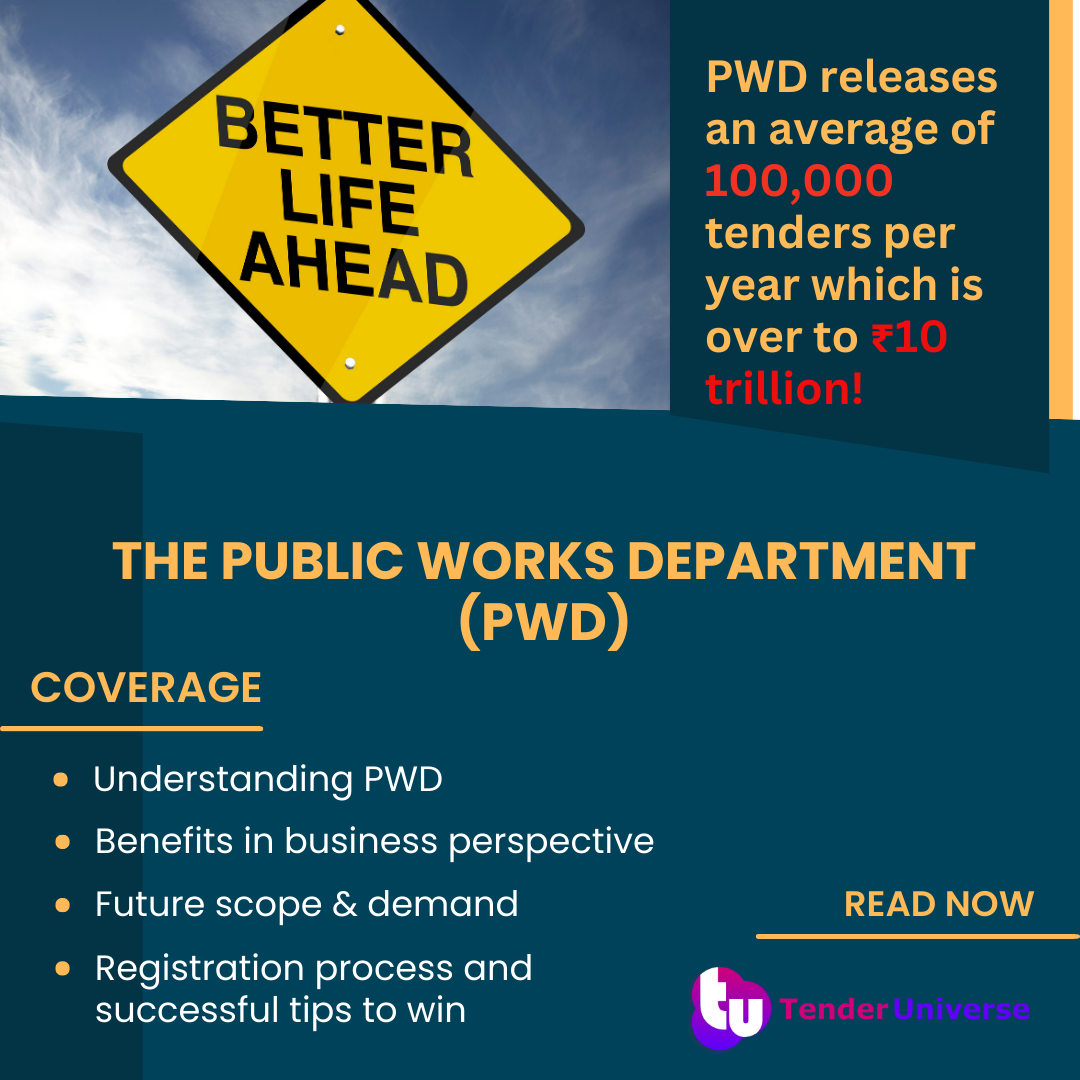

.png)
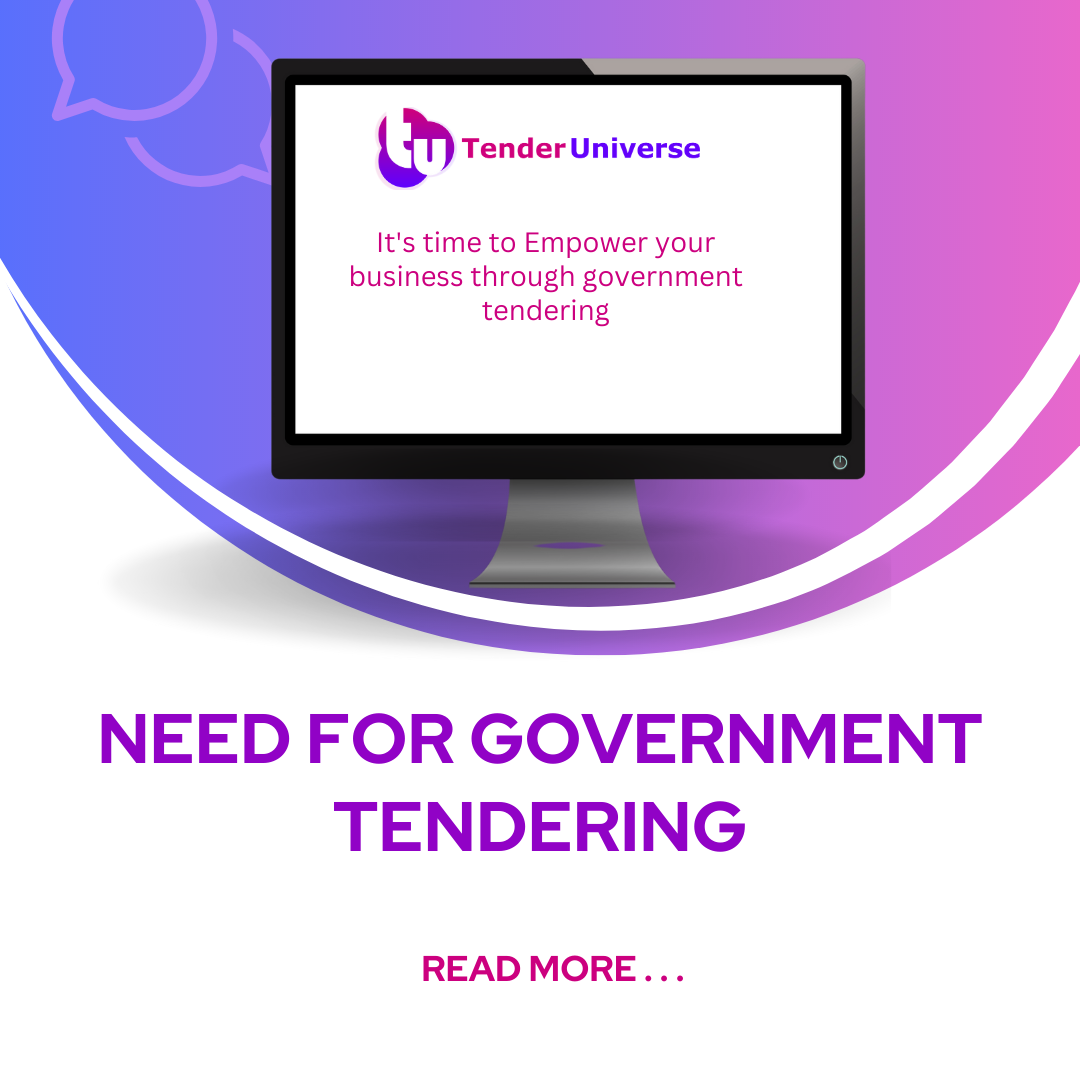
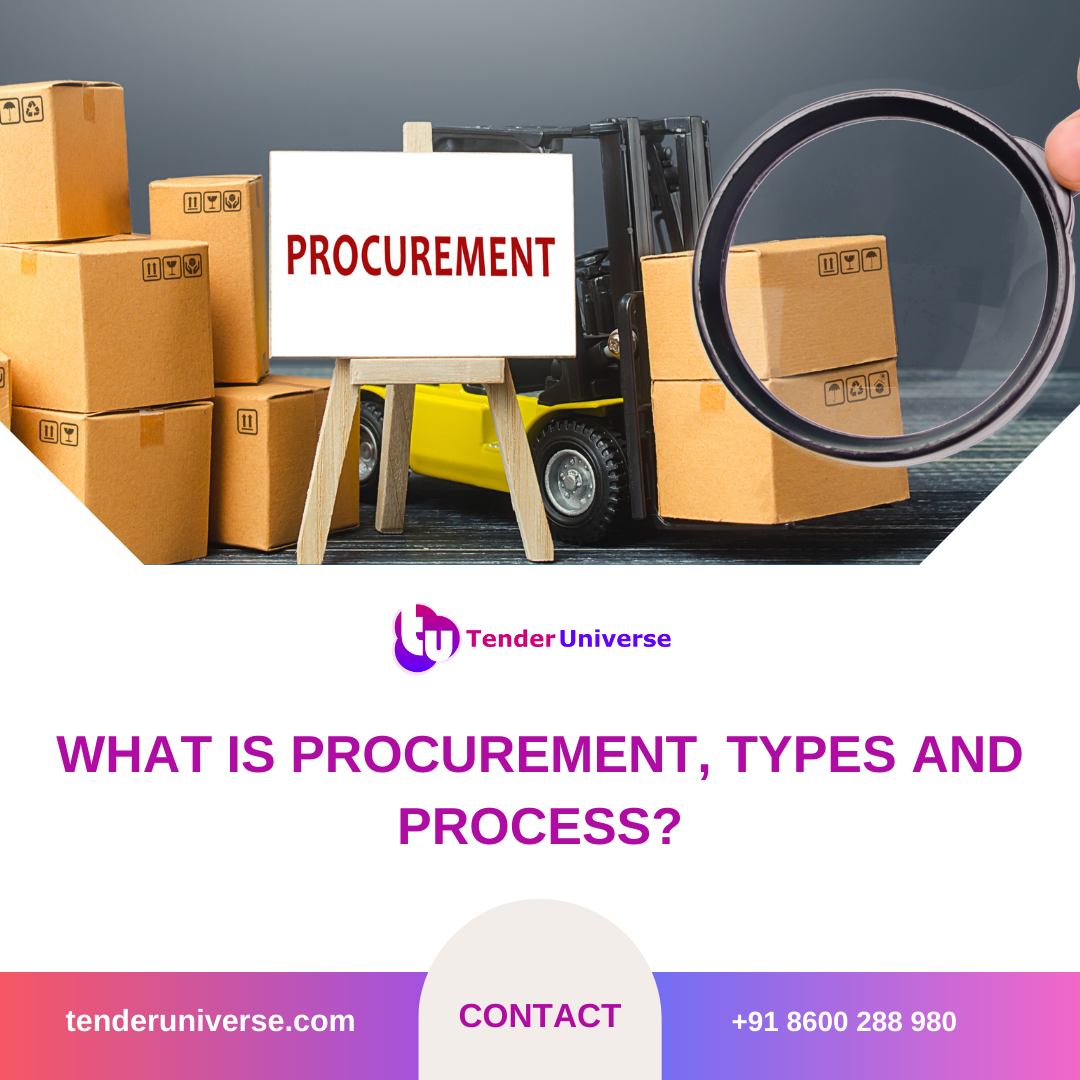
.png)